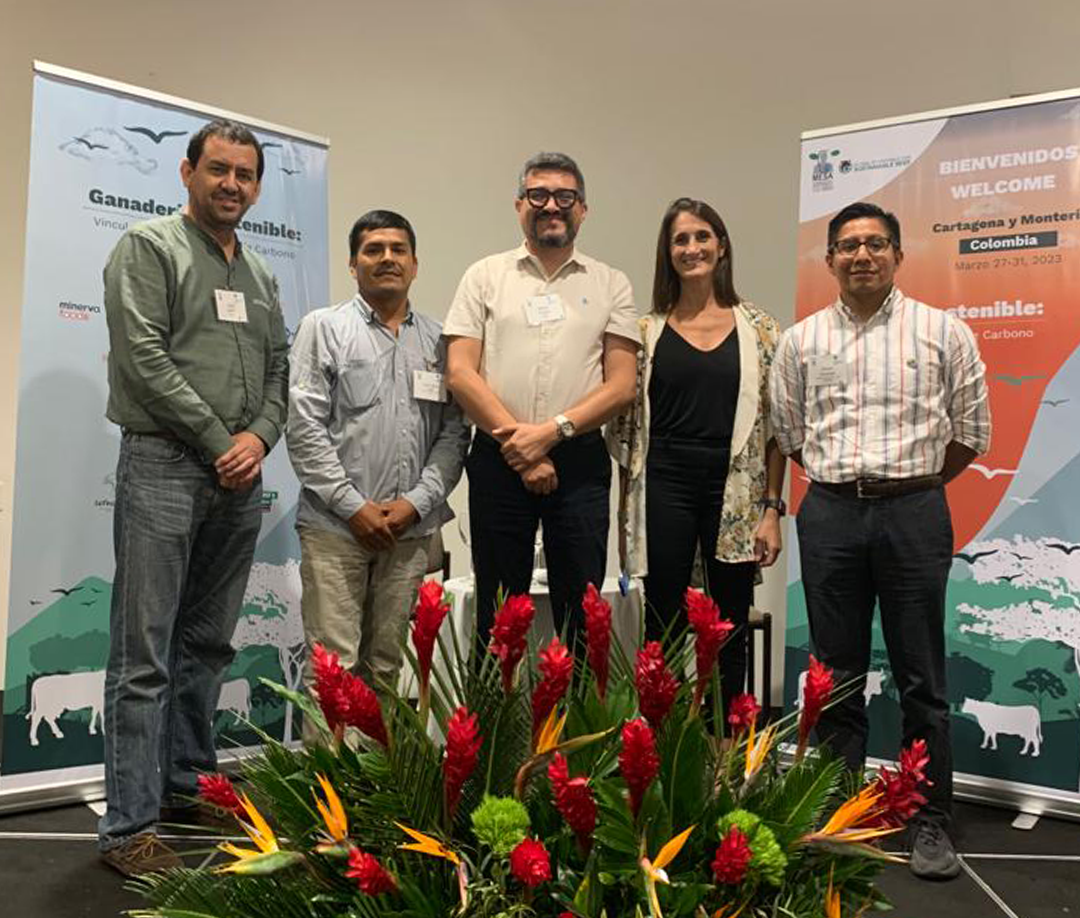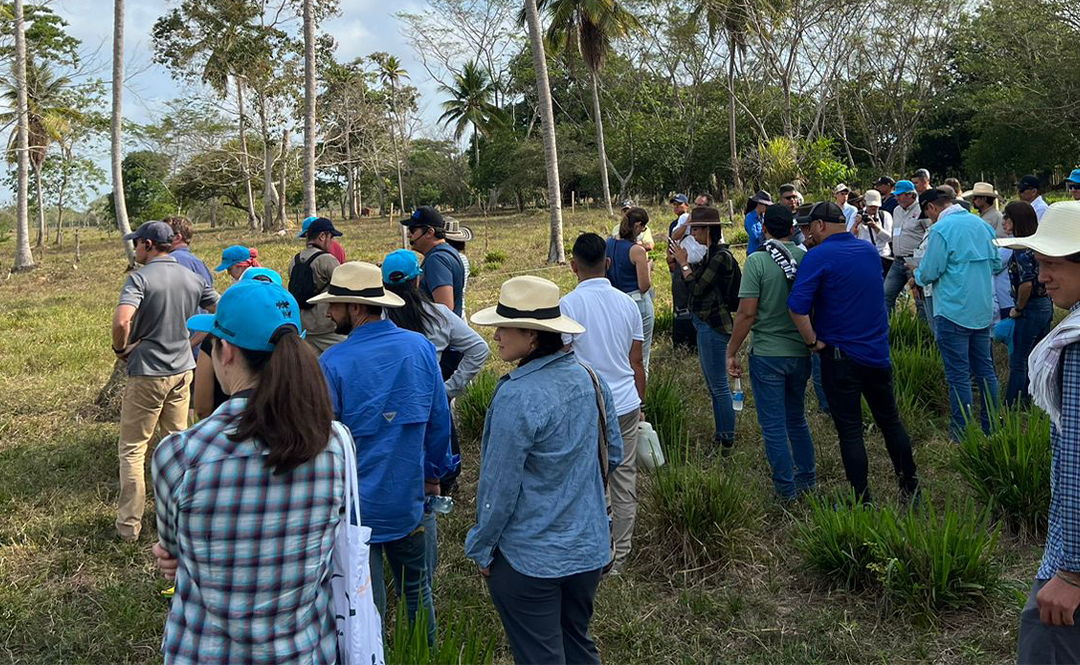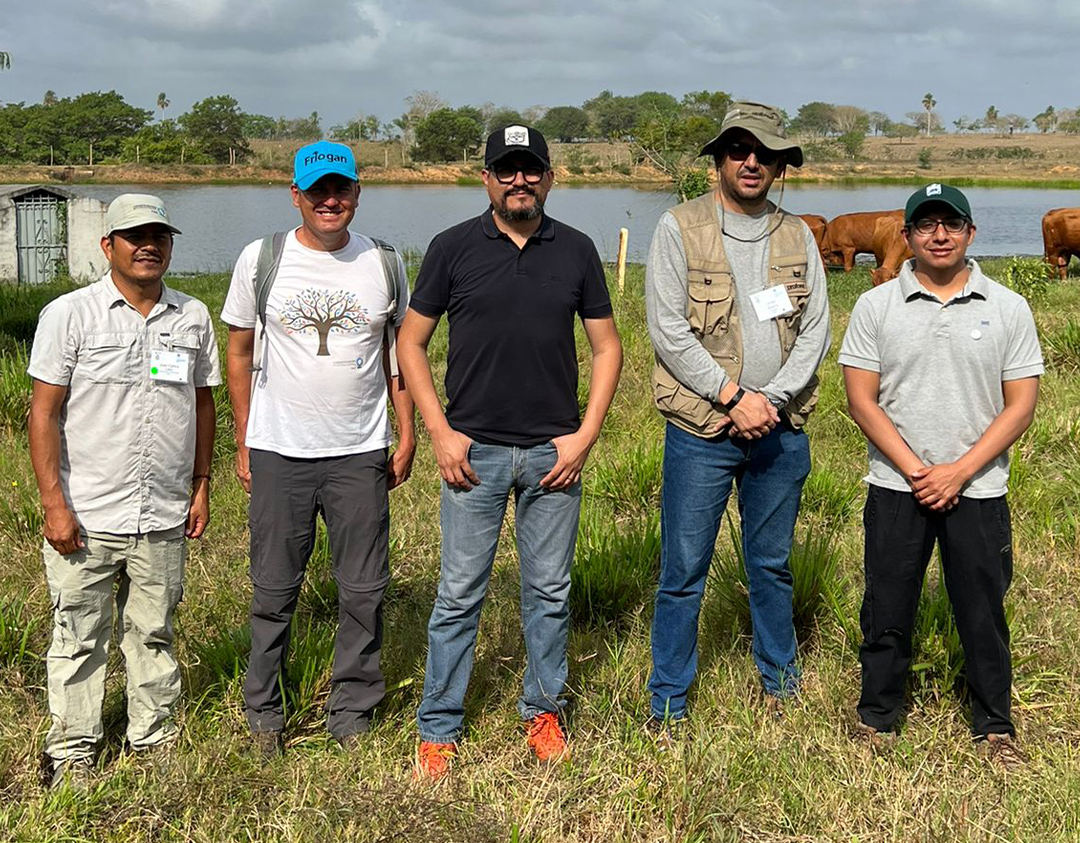

In a world where agriculture is responsible for a quarter of greenhouse gas emissions, the search for sustainable alternatives has become an urgent necessity. In this context, regenerative livestock farming represents a holistic and sustainable option that could transform the way meat and dairy are produced.

The recent Sustainable Livestock Symposium in Colombia, organized by the Global Roundtable for Sustainable Beef and the Mesa de Ganadería Sostenible de Colombia, brought together the main actors in the chain, from both the public and private sectors, to promote actions to transform extensive grazing practices. Livestock farming under silvopastoral systems is an opportunity to restore degraded areas, recover soils, generate ecosystems that increase and protect biodiversity, and improve levels of economic, environmental and social profitability.
Members of the Amazon Business Alliance, a platform promoted by USAID, the Government of Canada and Conservation International, participated in the symposium to learn about the practices and technologies that are reforming traditional livestock farming and explore investment opportunities to promote the transition of the chain towards a sustainable future. In order to design a roadmap for regenerative and sustainable livestock farming in the Peruvian Amazon, the company is working with different partners to generate enabling conditions and promote dialogue between the different actors in the chain.
“at this event we have been able to see successful experiences of good practices in regenerative cattle ranching, which has become an economic option for small producers and contributes to the restoration of biodiversity and carbon in soils”. For Summers, “regenerative livestock farming is a holistic sustainable production option that revalues the native varieties of livestock best adapted to the environment, combines native forage with trees and shrubs, which restores biodiversity and carbon in the soil while contributing to improving the quality of life of producers and their families”.
Además, como miembros del grupo de trabajo Alianza Por una Ganadería Regenerativa en la Amazonía Peruana (AGRAP), liderado por la Coalición por una Producción Sostenible, se ha estado coordinando con la Dirección General de Desarrollo Ganadero de MIDAGRI para desarrollar un convenio de cooperación interinstitucional que permita la incorporación de la ganadería regenerativa como una actividad que pueda ser promocionada por el Estado desde sus diversos mecanismos de financiamiento.
En el Perú aún hay pocas experiencias con ganadería sostenible, pero la Alianza Empresarial por la Amazonia continúa comprometida con la promoción de prácticas que mantienen vivo el pulso de la Amazonía, y seguirá trabajando junto a sus socios para lograr una transición hacia un modelo de ganadería regenerativa y climáticamente inteligente en la región.

Alianza Empresarial por la Amazonía (AEA)
La AEA es de un proyecto liderado por la Agencia de los Estados Unidos para el Desarrollo Internacional (USAID), el Gobierno de Canadá y Conservación Internacional, que busca promover la movilización de recursos financieros para el desarrollo de modelos de negocio sostenibles en el ámbito amazónico, impactando positivamente en la calidad de vida de la población, contribuyendo al desarrollo sostenible, la mitigación de los impactos del Cambio Climático y la puesta en valor del capital natural de esta región.